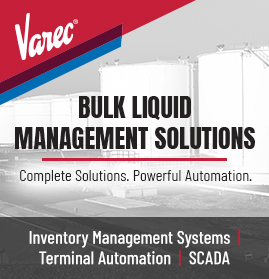Storage is a seemingly stable business, but as new technologies, new ideas and new practices develop, there is no place for complacency as competition is at its highest ever level.
Increasing margins and minimising costs are both attractive goals for traders and so storing products is far less appealing as utilisation and rental rates are squeezed. This makes times tougher for the storage industry. Terminal operators must be able to offer customers impeccable customer service as well as diversified capabilities in order to stay ahead of the competition.
Speakers at this year’s StocExpo Europe will get a chance to hear from a wide range of speakers to learn how and where opportunities for growth still exist, how they can use environmental pressures to their benefit and how to ensure their customers never look anywhere else.
Growth Opportunities
Paulo Nery, Senior Director for EMEA Oil, at internationally recognised data and intelligence provider Genscape will open the event in Rotterdam on March 20, 2018. Delegates can expect to hear how increased imports from the Baltics and Russia can lead to new opportunities.
As a result of rising competitive pressures, Europe has experienced a significant amount of refinery consolidation, meaning imports to the region need to increase. This leads to an upsurge in demand for import infrastructure, particularly at the ports. The Port of Antwerp is just one example where storage capacity is increasing, with the likes of Noord Natie, ITC Rubis and Ineos all expanding their facilities.
Diversification
With new environmental regulations being implemented, along with the need to cater for a wider variety of renewable energy products, the storage sector has no choice but to adapt to meet these environmental challenges.
Expert speakers Onur Capan, Commercial Analytics Manager at VTTI and Cyril Widdershoven Senior Advisor for Geopolitics at Verocy will both look at how the IMO regulations will impact the storage sector and may actually provide a growth opportunity for terminal operators.
From January 2020, the maximum permissible sulphur limit in bunker fuels will drop from 3.5% to 0.5%, leading to a rise in demand for storage capacity for different fuel grades. Those terminals that are diversifying are going to gain the competitive edge – the facilities investing in high speed blending capabilities are going to be the ones that benefit from high throughputs and tank utilisation rates.
Cutting costs
Internet of Things (IoT) is the new buzzword at the moment, but what does it mean for storage?
Delegates will hear a case study from the Global Director of Digital Innovation at Vopak about how the world’s largest terminal operator is using IoT to improve its bottom line.
Vopak has been able to make an impressive 25% saving to its energy usage. It is also among the first in the industry to be able to predict anticipated future activities (i.e. heating, mixing etc) and their impact on energy consumption.
Security & safety
The addition of new instrumentation & automation adds an additional risk to the terminal – that of cyber criminals. Any attack on a storage terminal could have a devastating effect – to the environment, employee safety, the company’s profits – not to mention its reputation.
Ruud Timmermans, Automation Engineer at VTTI will explain how terminals can protect themselves. Speaking alongside cyber security expert Marcel Jutte, Managing Director of Hudson Cybertec, he will look at which security controls terminals need to urgently implement, as well as how to train employees effectively.
StocExpo Europe will be held in Rotterdam on March 20-22. For more information, visit: www.stocexpo.com.









